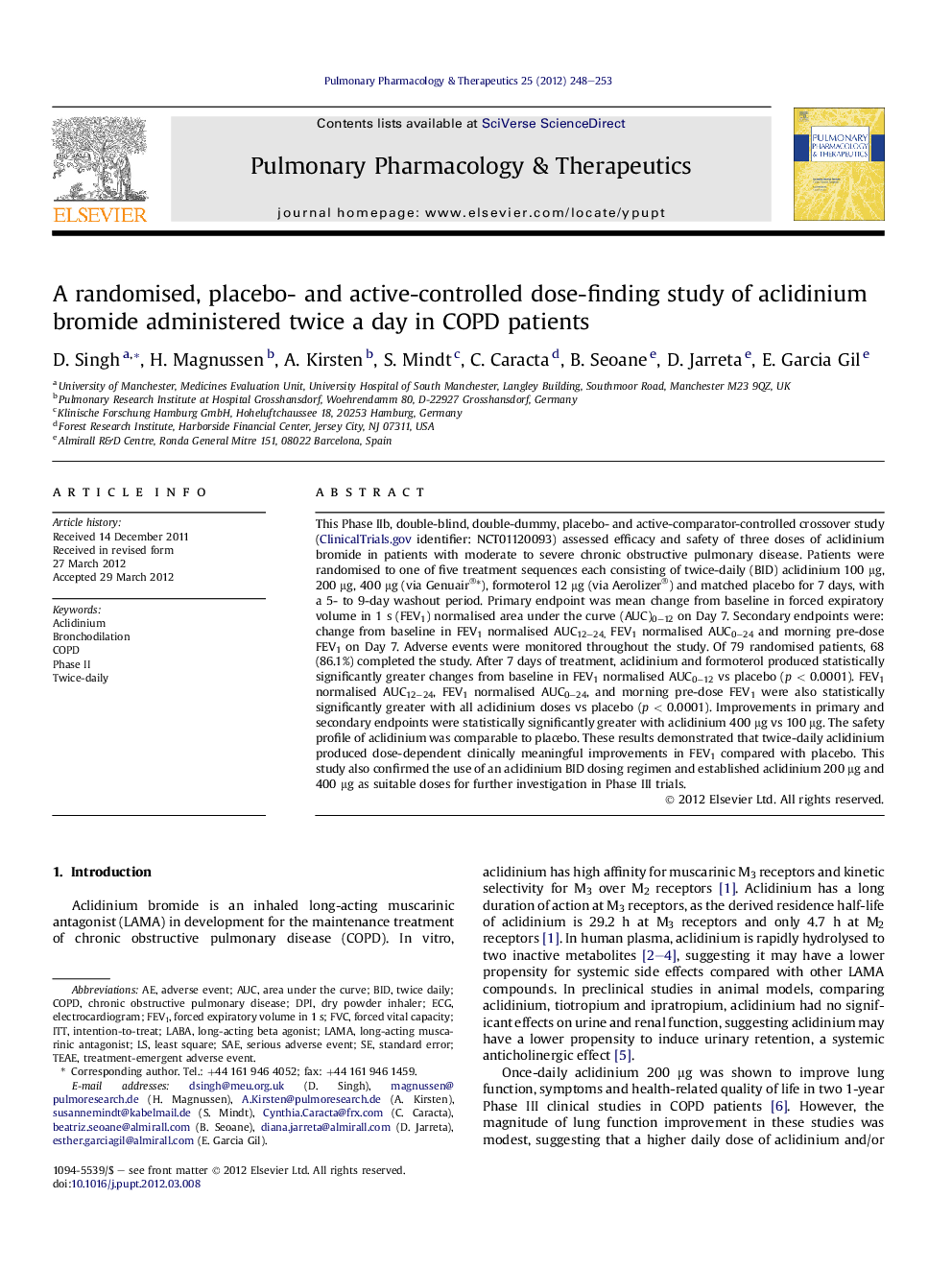| Article ID | Journal | Published Year | Pages | File Type |
|---|---|---|---|---|
| 2567432 | Pulmonary Pharmacology & Therapeutics | 2012 | 6 Pages |
This Phase IIb, double-blind, double-dummy, placebo- and active-comparator-controlled crossover study (ClinicalTrials.gov identifier: NCT01120093) assessed efficacy and safety of three doses of aclidinium bromide in patients with moderate to severe chronic obstructive pulmonary disease. Patients were randomised to one of five treatment sequences each consisting of twice-daily (BID) aclidinium 100 μg, 200 μg, 400 μg (via Genuair®*), formoterol 12 μg (via Aerolizer®) and matched placebo for 7 days, with a 5- to 9-day washout period. Primary endpoint was mean change from baseline in forced expiratory volume in 1 s (FEV1) normalised area under the curve (AUC)0–12 on Day 7. Secondary endpoints were: change from baseline in FEV1 normalised AUC12–24, FEV1 normalised AUC0−24 and morning pre-dose FEV1 on Day 7. Adverse events were monitored throughout the study. Of 79 randomised patients, 68 (86.1%) completed the study. After 7 days of treatment, aclidinium and formoterol produced statistically significantly greater changes from baseline in FEV1 normalised AUC0−12 vs placebo (p < 0.0001). FEV1 normalised AUC12−24, FEV1 normalised AUC0–24, and morning pre-dose FEV1 were also statistically significantly greater with all aclidinium doses vs placebo (p < 0.0001). Improvements in primary and secondary endpoints were statistically significantly greater with aclidinium 400 μg vs 100 μg. The safety profile of aclidinium was comparable to placebo. These results demonstrated that twice-daily aclidinium produced dose-dependent clinically meaningful improvements in FEV1 compared with placebo. This study also confirmed the use of an aclidinium BID dosing regimen and established aclidinium 200 μg and 400 μg as suitable doses for further investigation in Phase III trials.
